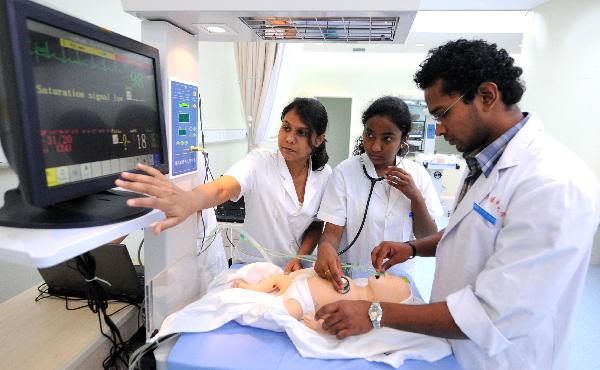If you are a foreign medical graduate (FMG) completing your residency training in the United States and wish to remain in the country, you will face several visa-status and timing issues related to immigration law. Both you and a prospective employer must understand your special circumstances, which differ from those of non-FMGs, and plan a strategy for resolving the issues well in advance of your anticipated start date —- and generally no later than the beginning of your final year in residency.
While you may glean helpful insights on the immigration process from this material and the well-meaning suggestions of colleagues or the Internet, none of these sources constitute legal advice. Just as your patients should not rely on the Internet or friends for diagnosis and treatment, neither should you regarding your immigration challenges. Every case is fact-specific. Plan to obtain counsel from an immigration attorney early in the process.
There may be times when an employer and employee will choose to have separate immigration counsel to evaluate options. You will want to make sure that the attorney handling your situation is experienced specifically in immigration for physicians.
There are four primary steps for attaining the proper visa or immigration status in order to practice medicine in the United States.
Step One: Examine your current visa status
When you meet with an immigration attorney, be prepared to provide copies of all documents relating to your immigration history. Most of your case history will determine both short- and long-term options available to you.
The basic documents to review include:
- Passport
- I-94 (arrival-departure record)
- DS-2019 forms issued for your J-1 participation (if applicable)
- I-20 forms (if you were ever in F-1 status)
- Copies of all immigration approval notices (or denials)
- CV
- Job offer (offer letter, contract)
- Documentation for spouse and children
Like a medical examination where a patient fails to mention current medications or a prior medical event, the failure to produce the documentation of your prior history may endanger your immigration health!
Step Two: Develop short- and long-term goals
The initial examination of your case includes an assessment of your goals. You should plan to have a candid conversation with immigration counsel about this. An employer should do the same. Key questions to consider include:
- What is your long-term goal (five-plus years)? Where would you like to live and practice?
-
Is your objective to gain a few years of experience in the United States and then to leave? Or is your goal to remain for a substantial part or all of your professional career?
-
Do you want to gain permanent residence?
- If you plan to leave the United States, do you anticipate returning to your country of nationality or permanent residence or elsewhere?
- Is immigration the paramount concern (that is, to anchor you and your family to the US) or is professional development the primary issue?
- Are you willing to live in a region of the United States in which there is a great demand for your specialty but which may not be an area in which you want to live long-term?
- Does your accompanying spouse share your vision or will compromising on location be difficult?
- Is your spouse a professional on a parallel track? Are you juggling the consideration of a two-career couple?
- Do you have children with special needs mandating specific areas for special schooling?
These are a few of the issues that will shape the strategy for your case.
To see what Step Three and Step Four are please click here to read further. This AIMResource Library will also have exercises and worksheets for you to complete. Good Luck on your Journey!
Author: Margaret A. Catillaz, Partner, Harter Secrest & Emery LLP. Margaret A. Catillaz is a partner at Harter Secrest & Emery LLP in Rochester, NY, where she specializes in immigration law with special emphasis on the issues encountered by foreign physicians. She is past president and board member emeritus of the American Immigration Lawyers Association, and was editor-in-chief of AILA’s second and third editions of Immigration Options for Physicians.
Sponsor: Though the views expressed above are solely the writer’s, Guthrie supports “The Dose with Dr. Goodhook” and is partnering with Adventures in Medicine to create an open, inspiring and insightful community for residents and physicians. Click here to learn more about ways that Guthrie is making practice purposeful.








